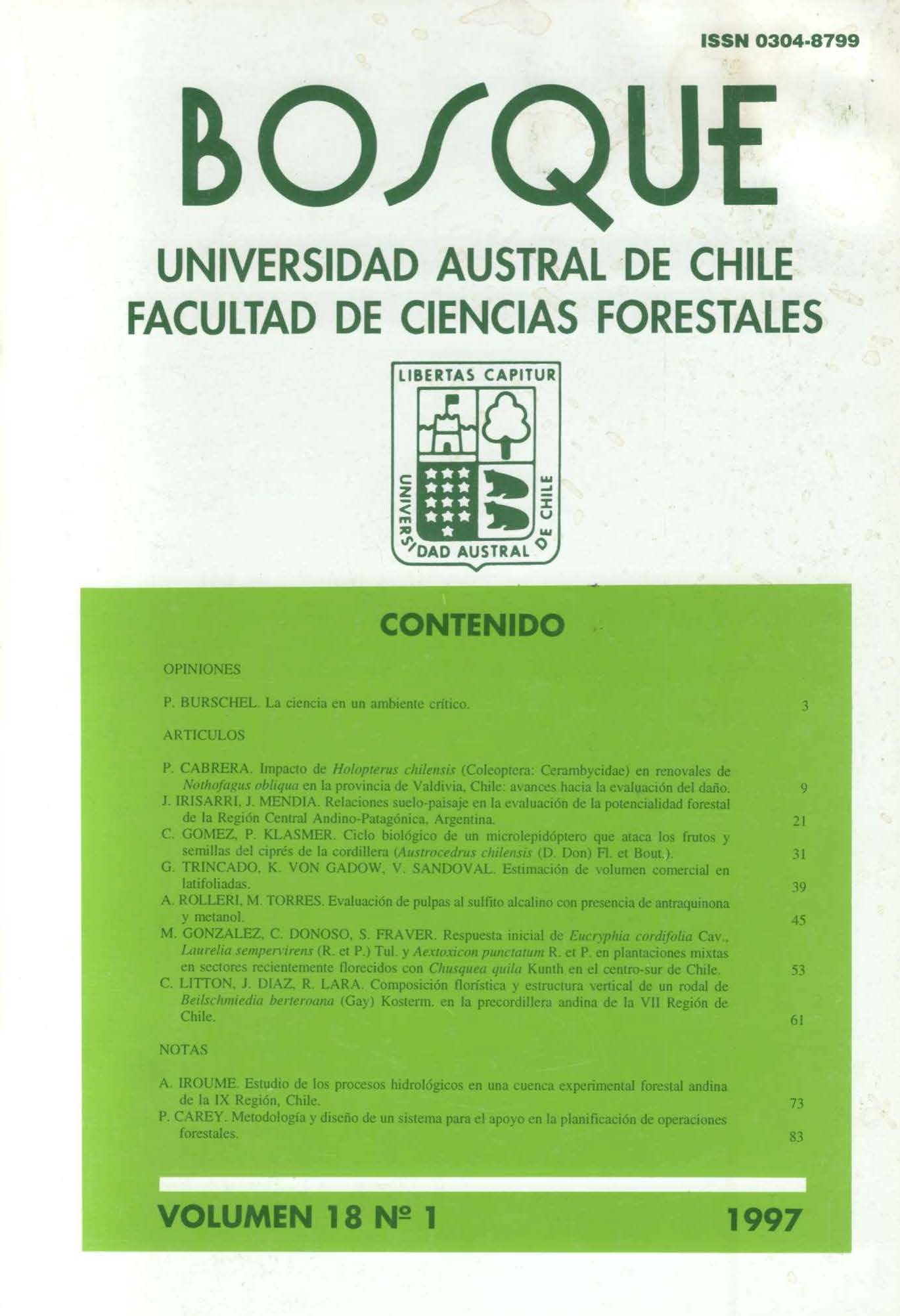Main Article Content
Jun 30, 1997
Abstract
The floristic composition and vertical structure of a Beilschmiedia berteroana (Gay) Kosterm. forest were studied in the National Reserve "Los Bellotos del Melado", located in the Andean foothills of Colbun in the province of Linares, VII Region.
For the analysis of floristic composition, absolute and relative frequency, density and dominance were determined in order to calculate an importance value for each species. The plant associations were determined with the dominance values of the tree species and the multivariate analysis program TWINSPAN (Two-Way Indicator Species Analysis).
Two different vertical structures were noted in the field and profiles were made to describe and compare the differences.
Eleven native woody species were found in the stand of B. berteroana, of which 5 are endemic to Chile. The dominant species were B. berteroana and Nothofagus obliqua (Mirb.) Oerst. Other differential species found were Retanilla ephedra (Vent.) Brongn., Lomatia dentata (R. et P.) R. Br. and Citronella mucronata (R. et P.) D. Don.
The B. berteroana stand presented two associations: Beilschmiedietum berteronei Typicum and NothofagusBeilschmiedietum berteronei. This last association can be divided into 4 subassociations: Nothofagus-Beilschmiedietum berteronei var. Retamillaetosum, Nothofagus-Beilschmiedietum berteronei var. Citronellaetosum, NothofagusBeilschmiedietum berteronei var. Typicum, and Nothofagus-Beilschmiedietum berteronei var. Lomatietosum.


